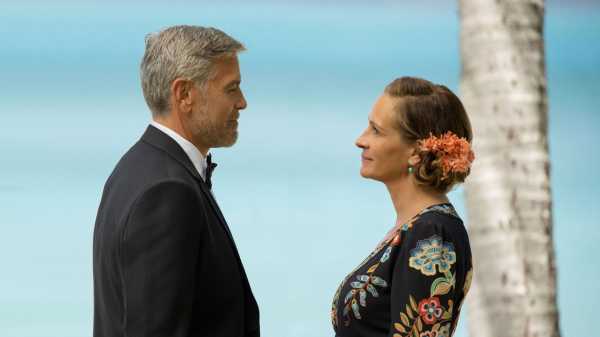
The sharp recent decline in willingness to date a person across party lines isn’t the reason why the romantic comedy is near-dead, but it’s indicative of the problem. The rom-com genre is inherently plot-driven, whereas few viewers any longer doubt that romance itself is anything but character-driven. Romantic comedies are mechanisms devised around characters with exactly the traits that appear to be obstacles to their romance; the machinery of the plot determines whether they will fall in love despite those traits or because of them. Today, the tightly formatted genre produces the stories that know too little: few viewers are likely to overlook the meshing of details, the shared passions and life goals, the mutual discoveries, the connections of experiences and world views, outlooks and ambitions, on which enduring relationships are built. Few are dupes about the spark of love at first sight, the fire of attraction—not because such instant yet powerful bonds are false or unreliable but, on the contrary, because they can signify the immediate recognition of a vast spectrum of hidden connections and affinities that will fuel the flames over time.
That’s a long way of saying that the stick figures set in motion in rom-coms get their simulation of amplitude from star power. The lead actors must convey a volume of personality and a weight of experience that the scripted characters don’t. “Ticket to Paradise,” starring George Clooney and Julia Roberts (such is their billing), depends on that power to fill out a simple framework of a story. It offers them too little to work with—too little guidance, too much empty space to fill. The couple that they play is burdened with a personal history that the movie never develops, never even discloses; their action is focussed on a second couple—one involving their daughter—that gets even less character development. To the extent that the movie’s charm depends on that of its two stars, they’re forced so rigidly into the plot’s contrivances that they have hardly any room to maneuver, hardly any chance to be merely observed, and are snippeted to live-action publicity stills of themselves.
Georgia Cotton (Roberts), a high-powered gallery owner, and David Cotton (Clooney), a big-project architect, were married for five years, divorced two decades ago, and have lived apart ever since, in unquenched acrimony and mutual recrimination. They haven’t been able to avoid each other because they have a daughter, Lily (Kaitlyn Dever), who, to launch the action, graduates from law school. (Even the former couple’s attendance at the ceremony leads to a public bout of competitive bickering.) With a job awaiting her, Lily heads to a tropical resort in Bali for a vacation with her best friend, Wren (Billie Lourd). There, in a moment of panic during an open-sea swim, Lily cute-meets Gede (Maxime Bouttier), a young man from the island who works as a seaweed farmer, and it’s love at first sight. Lily and Gede plan to marry quickly; they’ll live in Bali, and Lily will give up her lawyerly job (indeed, she seems ready to give up her legal career). When Lily tells her parents of this plan, they spring into action, flying to Bali ostensibly to attend the wedding but actually to put into motion a harebrained scheme to prevent it—to break the young couple up and get Lily home, to work, and to the life she’d otherwise leave behind.
Even before the plot gears mesh, the squabbling of David and Georgia is both obvious and flimsy. On the one hand, the backbiting is so easygoing and intimate that it sounds from the start like the banter of a longtime couple rather than the bile of a busted-up one; yet, on the other, there’s nothing in the movie to suggest why their breakup was so bitter, why the venom remains. The emptiness of their shared hatred is of a piece with the blanked-out generality of the characters themselves. The two worldly protagonists have nothing to say, not to each other, not to others, not even to text or e-mail friends. The movie, written by Ol Parker (who also directed) and Daniel Pipski, reduces them to mere symbols of middle-aged, mid-career success, with nothing, much less experience or sensibility, to show for it, except for another great unspoken: money.
In the long-ago Hollywood that sputtered out around the time that the Cottons’ marriage did, in which character types took precedence over character, money may have been no subject. In “Ticket to Paradise,” the protagonists’ wealth raises questions that the movie never faces, even though it’s the very basis of the plot. Not only do Georgia and David drop everything for their trip, which they stuff with unquestioned comforts and luxuries, but they appear to have conveyed that level of economic freedom—and the blithe confidence that goes with it—to Lily herself. So it seems, yet one wouldn’t know, because Lily and Gede are similarly blanked out by the movie’s schematic script. They’re the more interesting couple, and their apparent differences suggest an even more dramatic meshing of personalities, traits, and experiences. The depiction of the young pair’s immediate bond is done in a near-wink, with a clichéd shot of the beaming and breathless Lily, and leaves them with almost nothing defined except—in a telling touch that suggests this nonwhite, ostensible “exotic” is really just like “us”—for Gede explaining that he and his father, also a seaweed farmer, have a contract with Whole Foods. The very essence of the plot is the elder Cottons’ instrumentalizing of Lily and dismissal of Gede—the parents treating the young couple as the objects of their own designs, the instruments of their own will. Rather than counteract that cavalier egocentrism by developing Gede and Lily in any detail, the movie replicates and reinforces it.
Parker’s directorial purview is as narrow and cramped as the script. The chemistry between Roberts and Clooney is perfunctory, blandly amiable, and the stars never get to cut loose. The one noteworthy scene of flashy and invigorating physical action—it’s a dance to accompany a round of beer pong—is filmed so confiningly and edited so tightly as to resemble a thirty-second Viagra commercial. Even the natural glories of the island seem green-screened in. Only Gede’s father, Wayan (Agung Pindha), displays a genuine sense of humor; the sole touch of charm is a moment in which Gede shows that he has inherited it.
The overt innovation in the romantic comedies of Judd Apatow involves letting casts filled with funny people run wild with their humor. But the underlying innovation is perhaps the more important one: the structuring of his films on the missing, but implied, threshing- and fleshing-out of relationships through emotionally bruising conversations. His classics imply what I call the Cassavetes hour (yet there’s something Bergmanic about it, too)—the implicit power of his characters’ complexity, which is largely only suggested, but decisively. (“Ticket to Paradise” doesn’t even imply a Cassavetes minute.) The latter-day romantic comedy that puts such scenes into action, Noah Baumbach’s “Greenberg,” looks candidly at the dramatic implications of romance based more on character than on situations. In “Ticket to Paradise,” Parker sticks with antiquated romantic-comedy archetypes; in the process, he overlooks and effaces the two engaging couples at the center of the action. He omits the substance, the human factor, that would bring his spare yet solid framework to life. ♦
Sourse: newyorker.com






